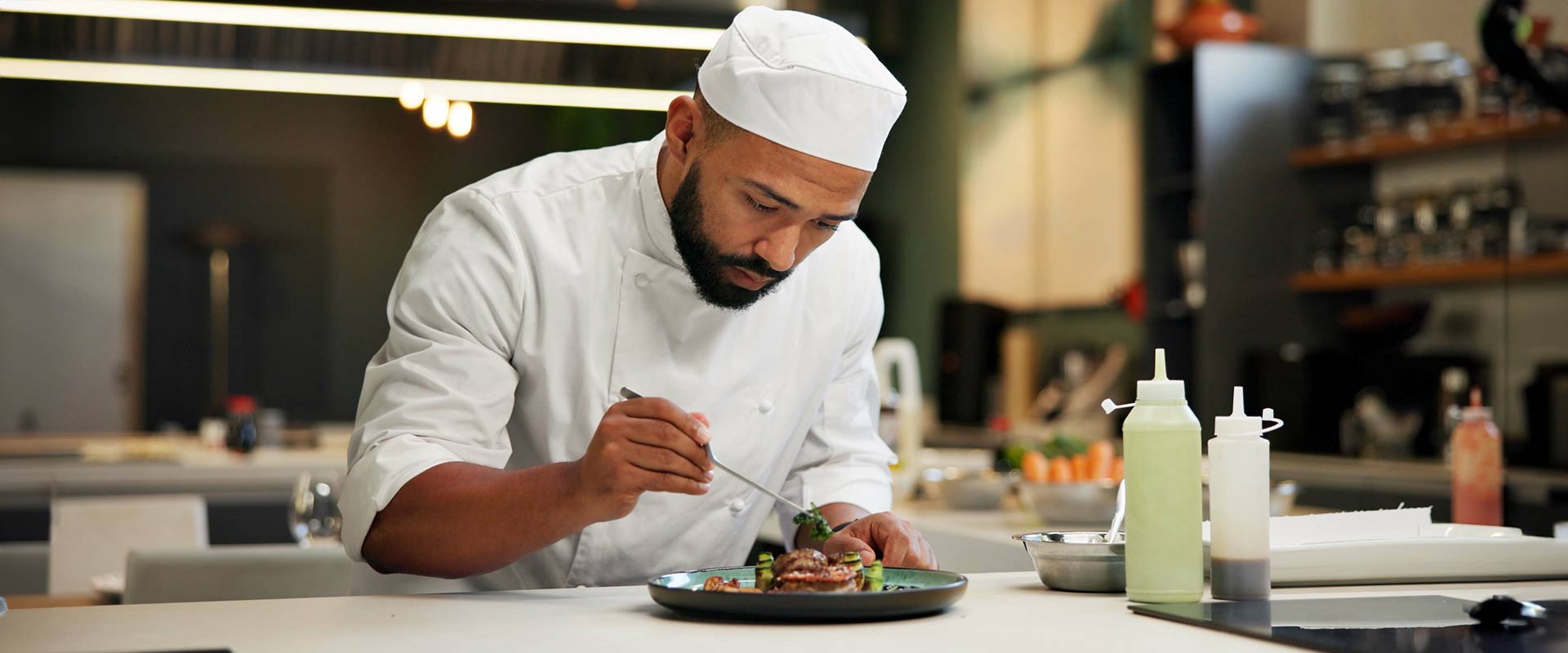Avoiding Catering Food Waste

Every kitchen can be a catering food waste-free zone
The hospitality industry often gets a bad rep when it comes to its sustainability credentials – particularly regarding catering food waste. Perhaps this isn’t surprising when you consider that, according to Wrap, one in six restaurant meals are wasted in the UK and 75% of restaurant food waste is avoidable. Approximately 18% of food purchased by restaurants ends up as waste, costing each site an average of £10,000.
Such shocking statistics should – and, in many cases, do – prompt hospitality businesses to do more to reduce their waste. But on a broader level there is arguably a collective responsibility that isn’t yet being addressed to the extent that it should.
Organisations such as the Sustainable Restaurant Association (SRA), with which Arla Pro partners, are doing incredible things to promote a more sustainable industry. What’s more, it feels like now is the right time to build more sustainable practices into our business agendas. As the industry looks to recover from its toughest ever period, sustainability should be a ‘red thread’ through this process of rebuilding. This means sourcing ingredients sustainably, reducing waste and truly serving the needs of our communities. It’s what diners want and it’s what we all need.
From an Arla Pro perspective, we know that reducing our waste takes dedication all the way from cow to consumer – and everything in between. From optimising production in our dairies through intelligent technology, to collaborations with food banks, our goal is to lead by example when it comes to fighting the war on catering food waste. For example, for several years Arla has worked with the European Food Banks Federation (FEBA) which brings together 326 food banks in 23 countries. In 2018 we provided more than 1,200 tonnes of dairy products to those in need via FEBA – enough to make 2,800,000 meals. And that’s just the tip of the iceberg.
Through our partnership with the SRA we’ve now launched War on Waste, a new practical guide to provide hospitality businesses and their kitchen staff with all the support they need to feed their customers and not their bins, thereby saving them money and significantly reducing their carbon footprint in the process.
With an easy-to-follow five-step recipe for success, mixed with expert food waste hacks from a trio of top chefs, the War on Waste guide is designed to help turn any commercial kitchen into a food waste-free zone. With food waste accounting for almost a tenth of the world’s greenhouse gas emissions, chefs can use the guide to take a big bite out of their impact on the planet.
Among the many useful tips and tricks, the War on Waste guide also draws on Arla Pro’s dairy expertise and provides an essential selection of hints on how to avoid wasting dairy products, such as a guide to the suitability of freezing different types of cheese.
As a big fast-moving consumer goods (FMCG) player, it’s perhaps no surprise that Arla Pro has such a robust sustainability agenda. And we acknowledge that there’s more still that we can do (we’re working towards carbon net zero by 2050, for example). We’re now calling on more FMCG businesses who supply hospitality to do the same – because if sustainability is not at the heart of all our agendas, then we’ll never create a truly sustainable industry that’s fit for the future.
In the meantime, we hope that our work with the SRA will go some way to supporting kitchens across the country to do their bit. Because only through our collective efforts can we successfully fight the War on Waste.
This article was originally published on The Caterer
To find out more about how we can help you as a catering recruitment agency click the button below
We are a hospitality and catering recruitment company. We can support you to find a new role or the staff you need to grow your business.


